Cover
Contents
Introduction
Terminology and Conventions
Reporting Bugs and Suggesting Improvements
Chapter 1 Deducing Types
Item 1: Understand template type deduction.
Case 1: ParamType is a Pointer or Reference, but not a Universal Reference
Case 2: ParamType is a Universal Reference
Case 3: ParamType is Neither a Pointer nor a Reference
Array Arguments
Function Arguments
Item 2: Understand auto type deduction.
Item 3: Understand decltype.
Item 4: Know how to view deduced types.
IDE Editors
Compiler Diagnostics
Runtime Output
Beyond typeid
Chapter 2 auto
Item 5: Prefer auto to explicit type declarations.
Item 6: Be aware of the typed initializer idiom.
Chapter 3 From C++98 to C++11 and C++14
Item 7: Distinguish () and {} when creating objects.
Item 8: Prefer nullptr to 0 and NULL.
Item 9: Prefer alias declarations to typedefs.
Item 10: Prefer scoped enums to unscoped enums.
Item 11: Prefer deleted functions to private undefined ones.
Item 12: Declare overriding functions override.
Item 13: Prefer const_iterators to iterators.
Item 14: Use constexpr whenever possible.
Item 15: Make const member functions thread-safe.
Item 16: Declare functions noexcept whenever possible.
Item 17: Consider pass by value for cheap-to-move parameters that are always copied .
Item 18: Consider emplacement instead of insertion.
Item 19: Understand special member function generation.
Chapter 4 Smart Pointers
Item 20: Use std::unique_ptr for exclusive-ownership resource management.
Item 21: Use std::shared_ptr for shared-ownership resource management.
Item 22: Use std::weak_ptr for std::shared_ptr-like pointers that can dangle.
Item 23: Prefer std::make_unique and std::make_shared to direct use of new.
Item 24: When using the Pimpl Idiom, define special member functions in the implementation file.
Chapter 5 Rvalue References, Move Semantics, and Perfect Forwarding
Item 25: Understand std::move and std::forward.
Item 26: Distinguish universal references from rvalue references.
Item 27: Use std::move on rvalue references, std::forward on universal references.
Item 28: Avoid overloading on universal references.
Item 29: Familiarize yourself with alternatives to overloading on universal references.
Abandoning overloading
Passing by const T&
Passing by value
Tag dispatch
Tag dispatch constructors
Trade-offs
Item 30: Understand reference collapsing.
Item 31: Assume that move operations are not present, not cheap, and not used.
Item 32: Familiarize yourself with perfect forwarding failure cases.
Braced initializers
0 or NULL as null pointers
Declaration-only integral static const data members
Overloaded function names and template names
Bitfields
Upshot
Chapter 6 Lambda Expressions
Item 33: Avoid default capture modes.
Item 34: Use init capture to move objects into closures.
Item 35: Use decltype on auto&& parameters to std::forward them.
Item 36: Prefer lambdas to std::bind.
Chapter 7 The Concurrency API
Item 37: Prefer task-based programming to thread-based.
Item 38: Specify std::launch::async if asynchronicity is essential.
Item 39: Make std::threads unjoinable on all paths.
Item 40: Be aware of varying thread handle destructor behavior.
Item 41: Consider void futures for one-shot event communication.
Item 42: Use std::atomic for concurrency, volatile for special memory.
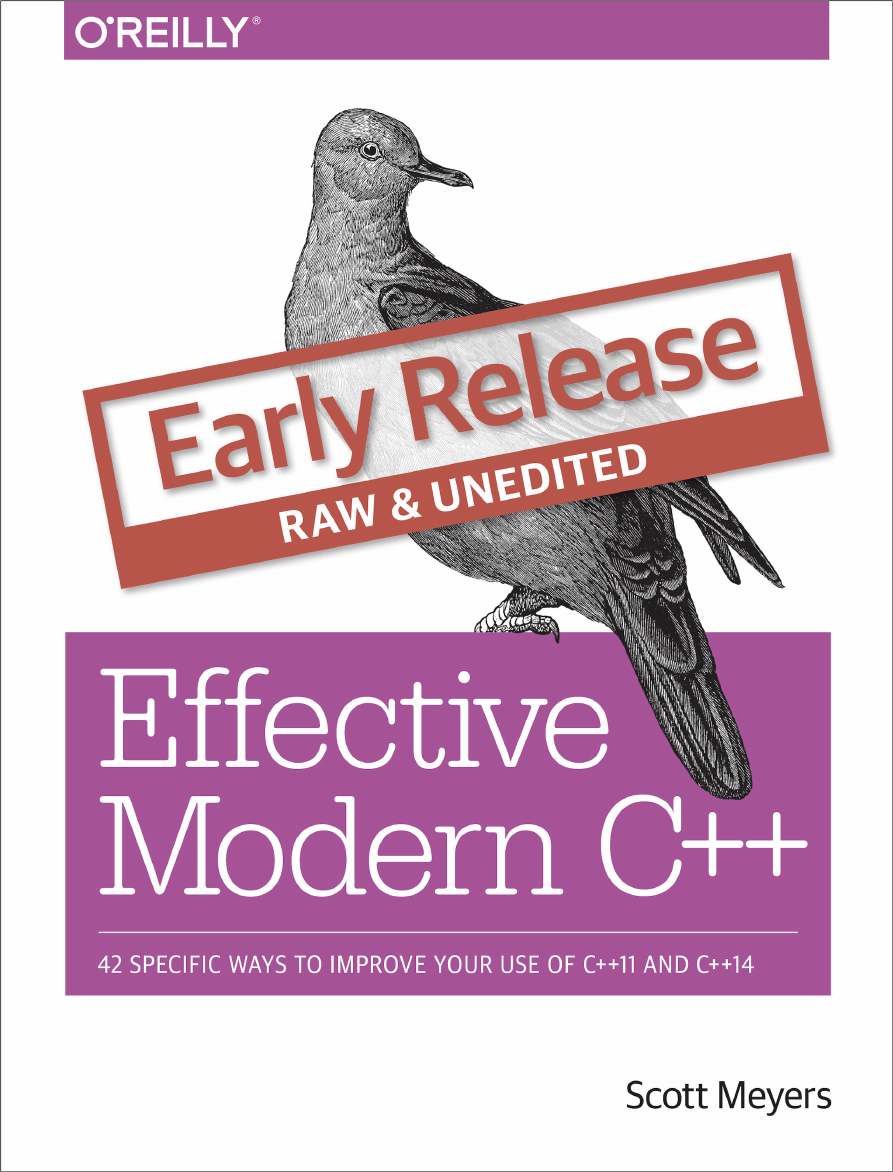
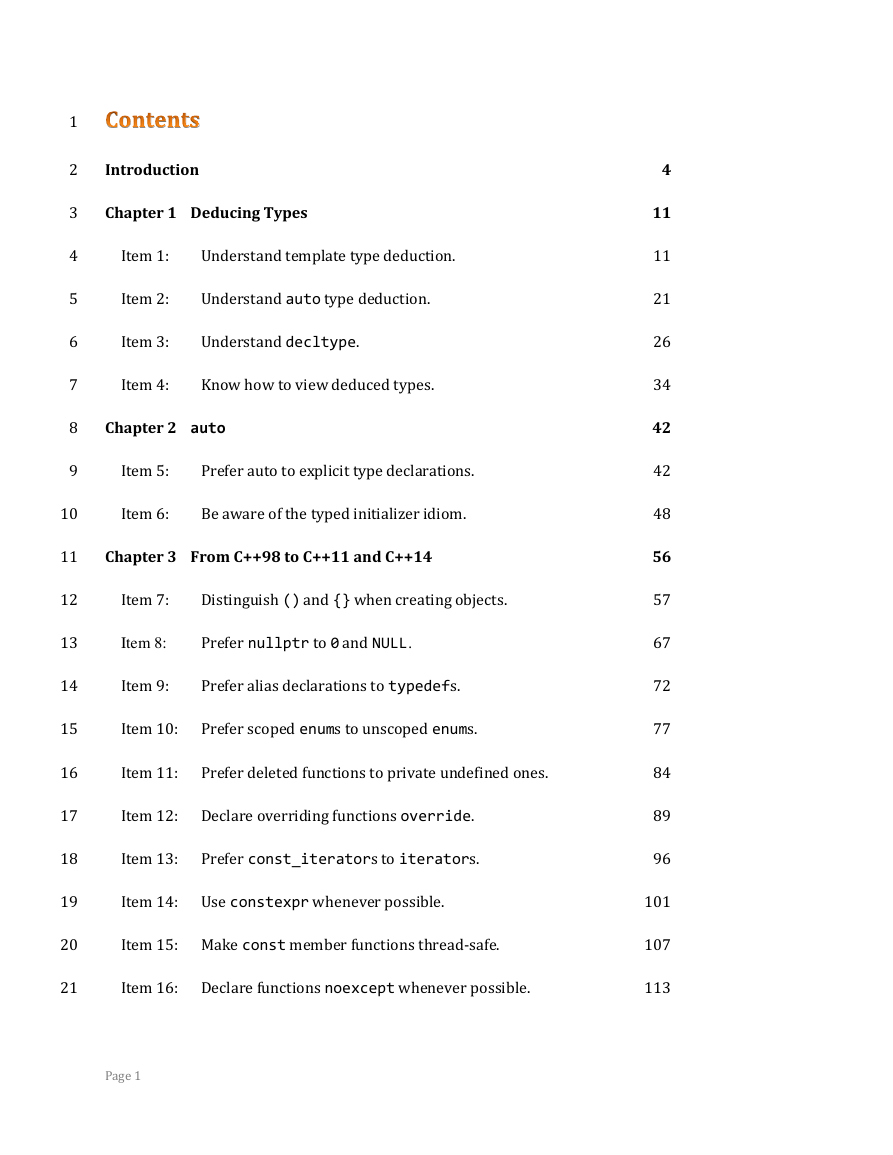
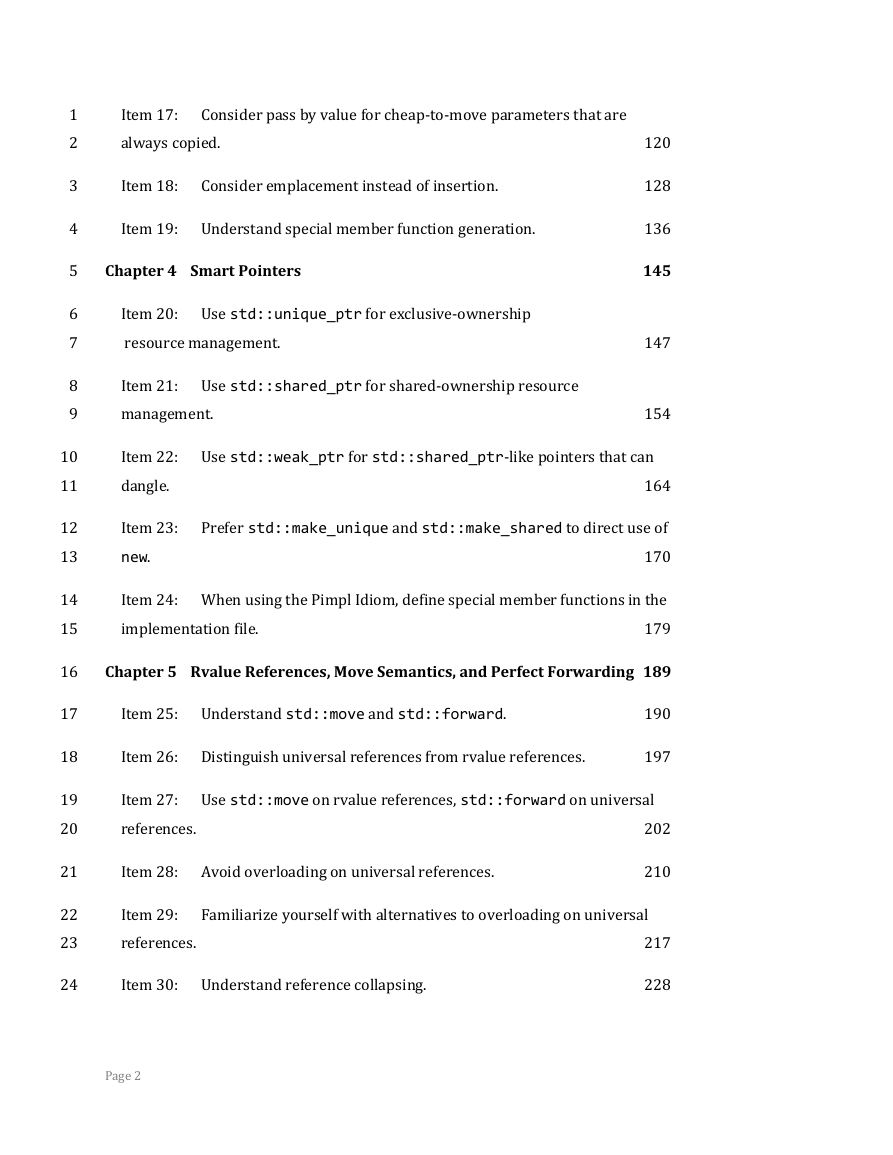
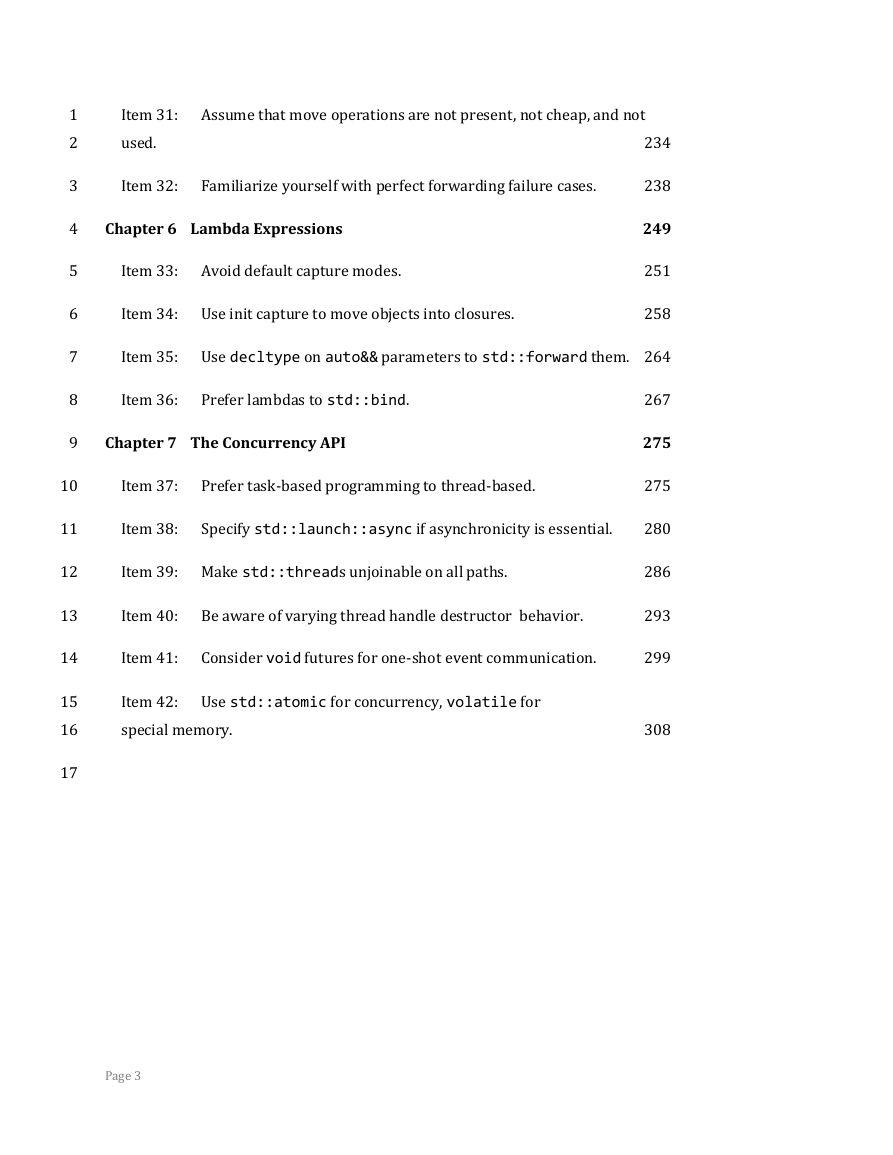

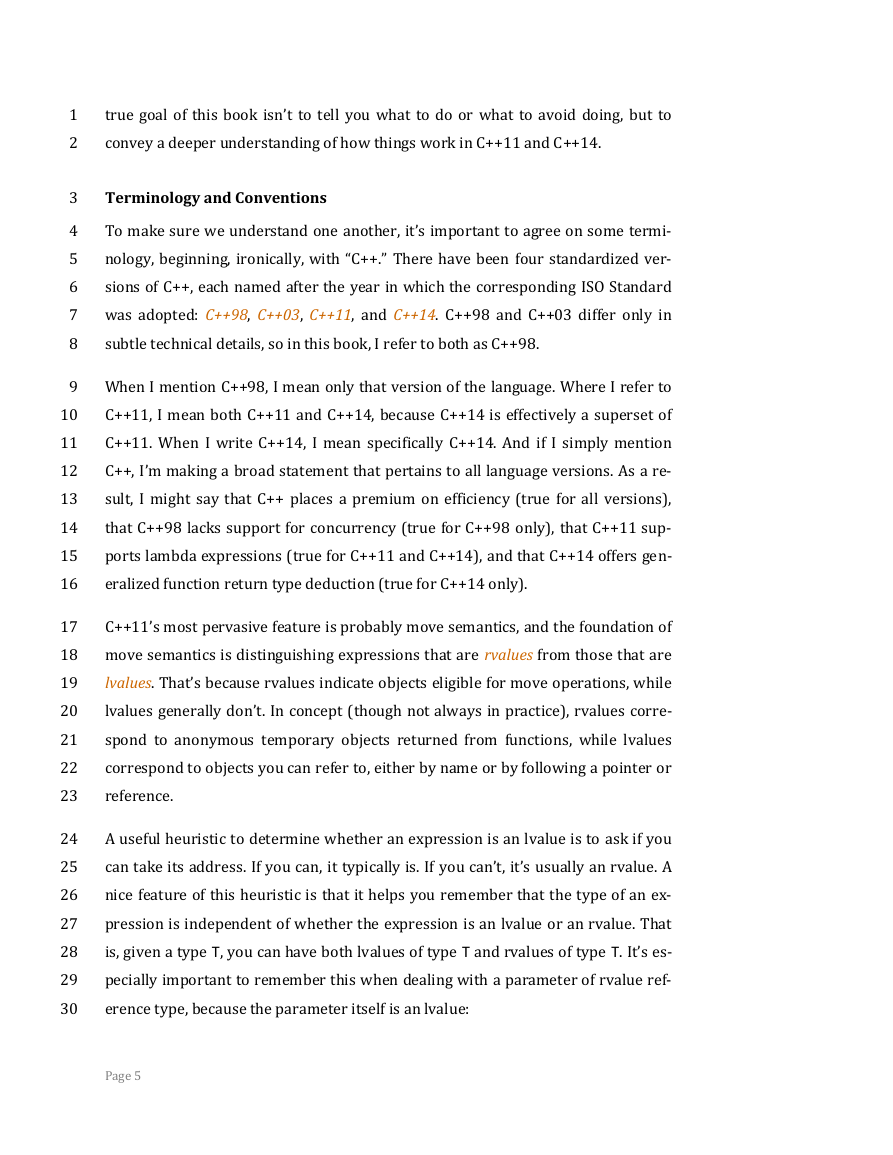
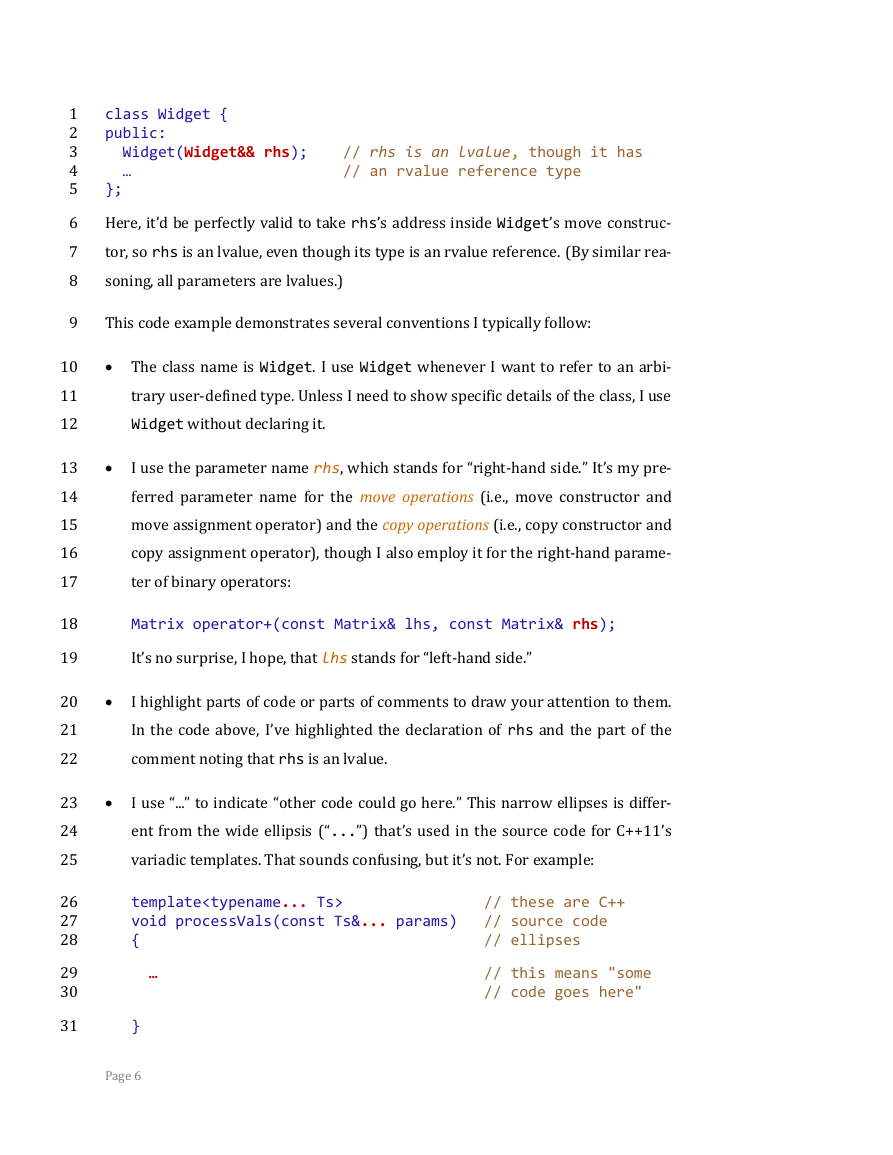
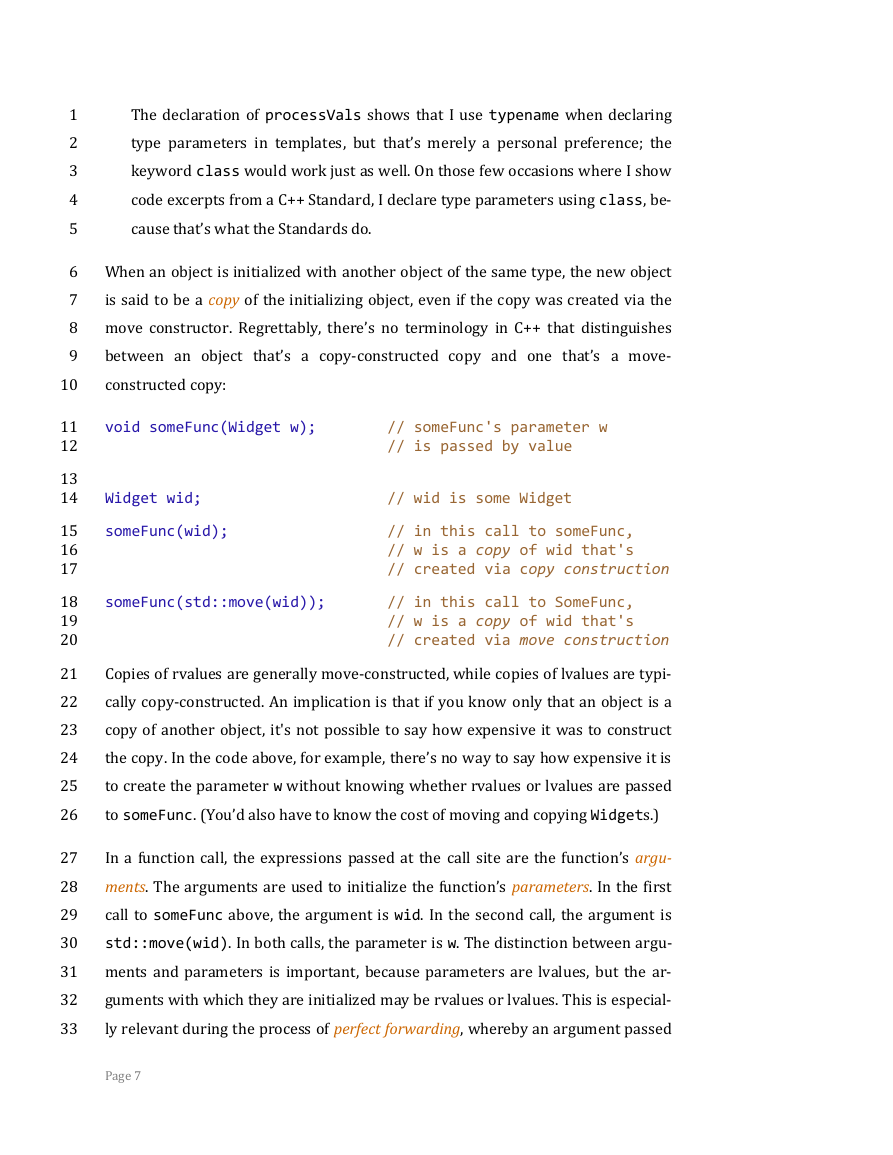








 2023年江西萍乡中考道德与法治真题及答案.doc
2023年江西萍乡中考道德与法治真题及答案.doc 2012年重庆南川中考生物真题及答案.doc
2012年重庆南川中考生物真题及答案.doc 2013年江西师范大学地理学综合及文艺理论基础考研真题.doc
2013年江西师范大学地理学综合及文艺理论基础考研真题.doc 2020年四川甘孜小升初语文真题及答案I卷.doc
2020年四川甘孜小升初语文真题及答案I卷.doc 2020年注册岩土工程师专业基础考试真题及答案.doc
2020年注册岩土工程师专业基础考试真题及答案.doc 2023-2024学年福建省厦门市九年级上学期数学月考试题及答案.doc
2023-2024学年福建省厦门市九年级上学期数学月考试题及答案.doc 2021-2022学年辽宁省沈阳市大东区九年级上学期语文期末试题及答案.doc
2021-2022学年辽宁省沈阳市大东区九年级上学期语文期末试题及答案.doc 2022-2023学年北京东城区初三第一学期物理期末试卷及答案.doc
2022-2023学年北京东城区初三第一学期物理期末试卷及答案.doc 2018上半年江西教师资格初中地理学科知识与教学能力真题及答案.doc
2018上半年江西教师资格初中地理学科知识与教学能力真题及答案.doc 2012年河北国家公务员申论考试真题及答案-省级.doc
2012年河北国家公务员申论考试真题及答案-省级.doc 2020-2021学年江苏省扬州市江都区邵樊片九年级上学期数学第一次质量检测试题及答案.doc
2020-2021学年江苏省扬州市江都区邵樊片九年级上学期数学第一次质量检测试题及答案.doc 2022下半年黑龙江教师资格证中学综合素质真题及答案.doc
2022下半年黑龙江教师资格证中学综合素质真题及答案.doc